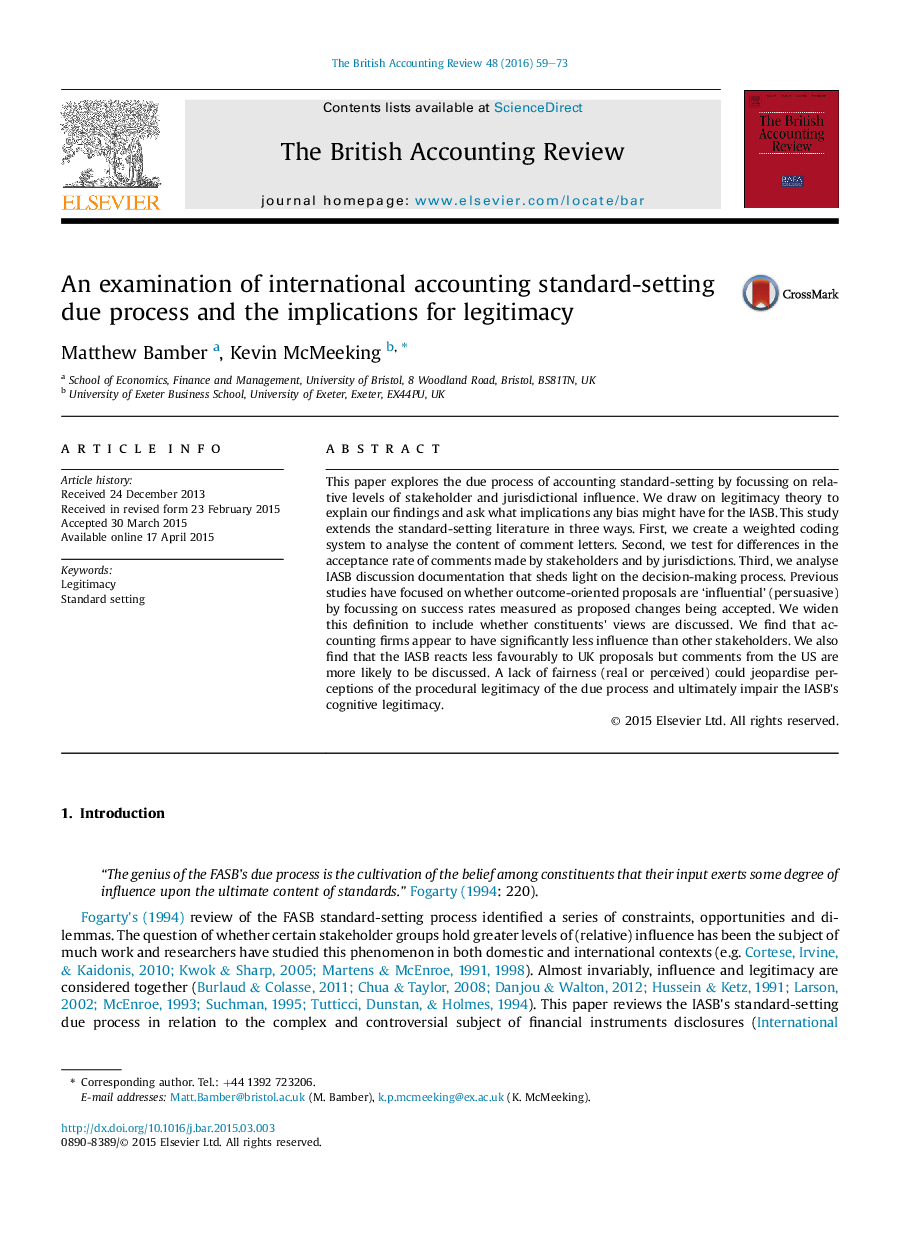| Article ID | Journal | Published Year | Pages | File Type |
|---|---|---|---|---|
| 1003938 | The British Accounting Review | 2016 | 15 Pages |
This paper explores the due process of accounting standard-setting by focussing on relative levels of stakeholder and jurisdictional influence. We draw on legitimacy theory to explain our findings and ask what implications any bias might have for the IASB. This study extends the standard-setting literature in three ways. First, we create a weighted coding system to analyse the content of comment letters. Second, we test for differences in the acceptance rate of comments made by stakeholders and by jurisdictions. Third, we analyse IASB discussion documentation that sheds light on the decision-making process. Previous studies have focused on whether outcome-oriented proposals are ‘influential’ (persuasive) by focussing on success rates measured as proposed changes being accepted. We widen this definition to include whether constituents' views are discussed. We find that accounting firms appear to have significantly less influence than other stakeholders. We also find that the IASB reacts less favourably to UK proposals but comments from the US are more likely to be discussed. A lack of fairness (real or perceived) could jeopardise perceptions of the procedural legitimacy of the due process and ultimately impair the IASB's cognitive legitimacy.
